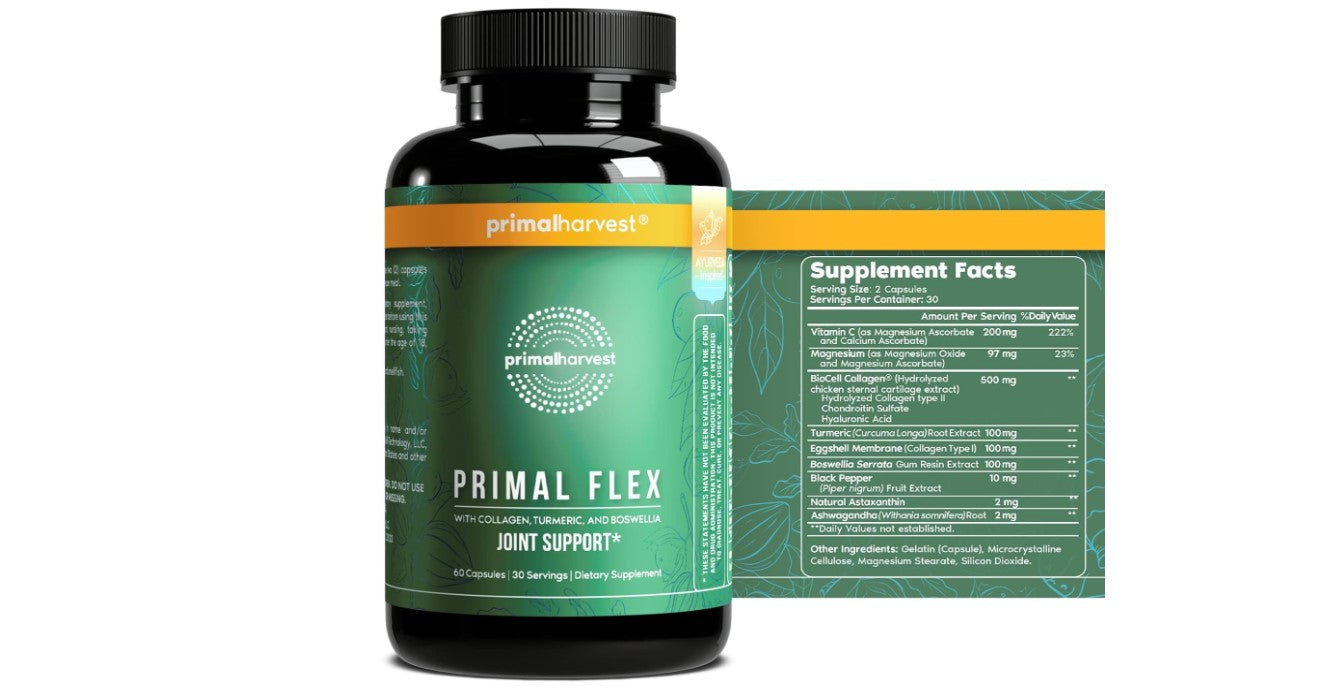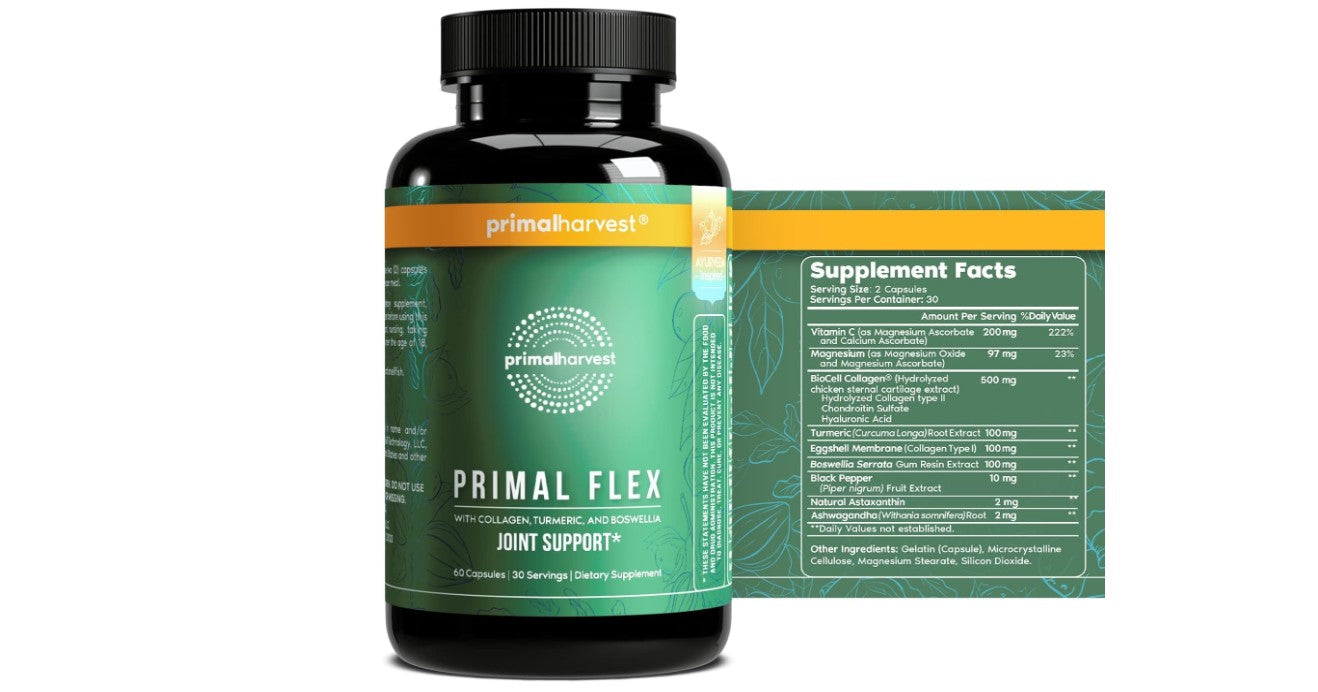
Primal Flex Ingredients Breakdown
Vitamin C 200mg – This is 222% of your daily dose and a deficiency can lead to joint issues, so it’s not a terrible inclusion on the face of things. The problem is that Primal Harvest is looking at vitamin c from an injectable standpoint. Vitamin C injections have been shown to improve osteoarthritis symptoms [2] at this dose, but unfortunately the efficacy doesn’t apply to oral consumption. So enough to make sure you hit your RDI would be good, but taking up this much capsule space is largely a waste.
Magnesium 97mg – As magnesium oxide isn’t the most bioavailable form, coming in at only 22% of the RDI it’s not the best inclusion. Again it can have some benefit for joint health and low magnesium has been connected to OA progression [3]. So, it’s not a bad inclusion, but the reason combined supplements don’t often contain magnesium is that the versions your body can actually absorb are very large and usually only contain 15% magnesium. As such you normally need a full capsule just for the magnesium to be in an affective dose.
Biocell collagen 500mg – This is made up of type ii collagen, chondroitin and hyaluronic acid, and whilst type ii collagen has been shown to be effective [4], hyaluronic acid only works via injection [5] as the stomach breaks it down and chondroitin is simply a supporting ingredient which increases the effectiveness of glucosamine, which isn’t actually present in Primal Flex.
Turmeric 100mg – Turmeric is actually a good ingredient for a joint supplement, the problem as we mentioned in the intro is quite simply that there is nowhere near enough of the active ingredient curcumin to be effective here. [1]
Eggshell membrane 100mg – Eggshell isn’t the worst ingredient, and recent meta analysis has shown that it has resulted in statistically significant increases to mobility for joints vs placebo’s [6] however, once again with Primal Flex we have an issue of dosage as this is about 10x lower than what is recommended.
Boswellia 100mg – Boswellia is a pretty common inclusion in joint supplements, and it’s been shown to be effective at 100mg as an anti inflammatory and for joint pain relief, so no issues with this one. [7]
Black Pepper 10mg – Black pepper or bioperine has been shown to improve the absorption rate of nutrients so it’s generally an ok ingredient for most supplements.
Ashwagandha 2mg – Ashwagandha does have some anti inflammatory properties, but the smallest amount that has ever shown results in a clinical trial is 250mg [8]. As such it’s not going to do anything in a 2mg dose.
Astaxanthin 2mg – And once again we have another ingredient that could work for osteoarthritis progression specifically if it was correctly dosed (at 10mg/lb of body weight) and it is nowhere near that. [9] Even with that in mind the research is relatively new and there hasn’t been much evidence since a study conducted in 2019, so again a good idea, but poor execution from Primal Flex.
References
1 - https://www.ncbi.nlm.nih.gov/pmc/articles/PMC7812094/
2 - https://www.ncbi.nlm.nih.gov/pmc/articles/PMC8543556/
3 - https://www.ncbi.nlm.nih.gov/pmc/articles/PMC4444049/
4 – https://www.ncbi.nlm.nih.gov/pmc/articles/PMC7222752/
5 - https://www.ncbi.nlm.nih.gov/pmc/articles/PMC9135165/
6 - https://www.ncbi.nlm.nih.gov/pmc/articles/PMC7989856/
7 - https://www.ncbi.nlm.nih.gov/pmc/articles/PMC7368679/
- Choosing a selection results in a full page refresh.
- Opens in a new window.
